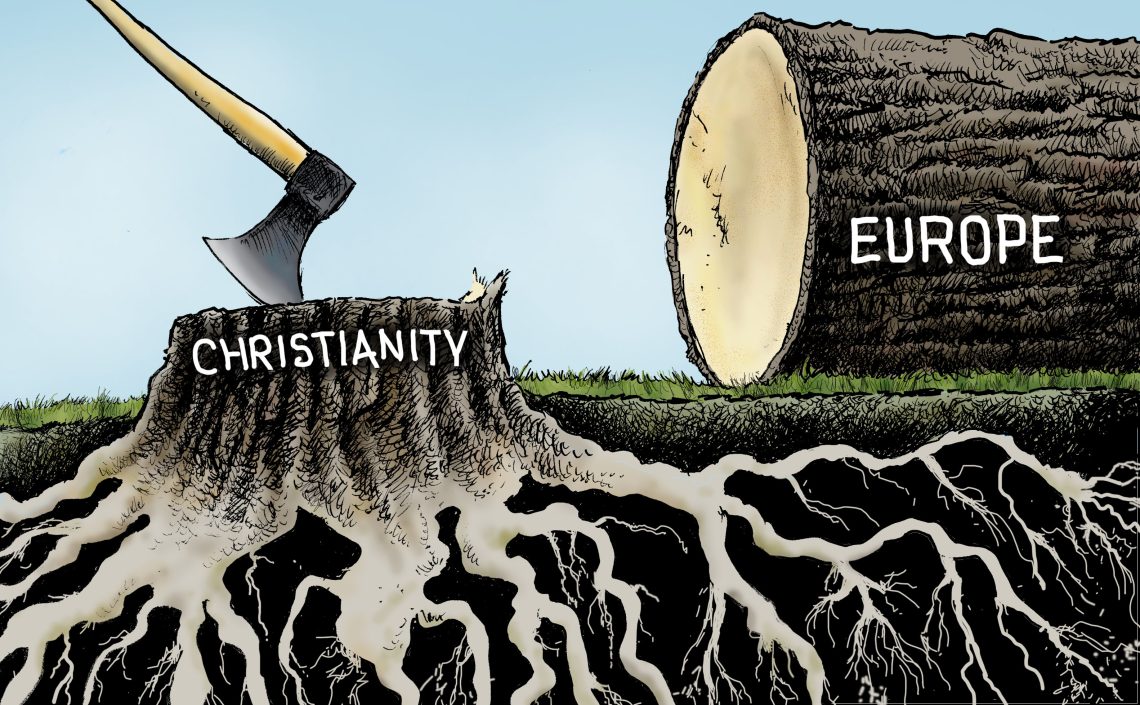Europe ignoring its roots and values
Freedom, liberalism and the rule of law are part of Europe’s Christian heritage, and they are being gradually cast aside.

European integration was and is an important project. In evolving, it became an institution, the European Union, which provides a framework to most European states. This common ground is based on what are described as European values: freedom, democracy, equality and the rule of law. These principles are meant to protect human dignity and promote peace and stability.
But, independently of the institution of the European Union, when discussing values and principles, we should try to understand what Europe is. The European subcontinent consists of a variety of people. The only real common denominator for Europe is its Christian heritage. And it is this Christian heritage that led to individual freedom, liberalism, democratic institutions, and as a result, also to the rule of law. It was the Christian tradition itself that required the separation of religion and state. Jesus said in the gospels: “Give Caesar what is his, and give God what is his.” This means a secular state and freedom of religion.
In this tradition, a legal system must protect freedom and should not limit individual freedom, be it speech, opinion, choice, property rights or privacy, to mention just a few.
Jeopardized system
The concept of democracy emerged early in European societies, but it was not necessarily dominant. Poland and Switzerland were early adopters, but it was American independence that laid down the most important basis for freedom and democracy. The United States Constitution makes it clear that its main objective is to protect freedom, meaning protecting citizens against the government and its administration.
Looking at European countries, as well as the institution of the European Union, can we say that the principles of freedom, democracy and rule of law are really being respected?
When it comes to individual freedom, more and more rules and regulations are interfering with personal choices. Individual property rights and privacy are part of individual freedom as well. Still, data collection by authorities takes place to a horrifying extent. Although the General Data Protection Regulation (GDPR) should protect individuals, it can be bypassed with specific legislation and gives governments access to most private data. The argument that many people do not hesitate to share their data with businesses or while browsing online is not valid. There is a fundamental difference – the state can use this information to restrict individual freedom, and citizens can be forced to provide their data.
In parallel, rampant overregulation and byzantine tax rules are limiting property rights. In theory, Europeans are free to move from one country to another. Many countries, however, introduce exit taxes that hinder the free movement of more prosperous citizens.
Democracy is a great governance system. But in several states, its principles have become eroded because of the sclerotic party system in place. Members of parliament, whether national or European, have become professional politicians and need payments from the state to subsist. This jeopardizes their main role, which is to defend the interests of the citizens against those of the state and its administration. And, looking at the European level, there are deficits.
The rule of law should ensure that governments and other public institutions abide by existing legislation rather than do what is politically convenient.
An independent legal system should guarantee the rule of law. Hungary and Poland were and still are severely criticized in this regard. But unfortunately, a lack of judicial independence of varying degrees can be seen in other member countries as well as in the European Court of Justice. For instance, the latter’s ruling on the issue of European debt was a typical politically motivated ruling and led to a major conflict between the German supreme court and the European court.
The rule of law should ensure that governments and other public institutions abide by existing legislation rather than do what is politically convenient. It could be argued that the new policies of European central banks are illegal, but still, they are happily tolerated. Another example is the “welcome culture” promoted by the Merkel government, which did not adhere to the Schengen rules. The Maastricht Treaty criteria on deficits and debts are being merrily ignored by nearly all member states.
Regrettably, Europe is no longer very competitive on the world stage when it comes to both economy and security. And yet politicians constantly invoke European values. Under this slogan, they aim to centralize Europe, harmonize procedures as much as possible, and then promote this method in the rest of the world. This is not sustainable; centralization and harmonization harm competitiveness. Value-based policies will only be credible if they adhere to real values and sound principles: individual freedom, property rights and competitiveness. Competition should be allowed not only on global markets but also between EU member states and regions. This would make Europe strong.
Otto von Habsburg once said: “Europe will either be Christian or it will not be.” This does not mean that anyone should be made to adhere to a religion. Religious freedom is important. But, judging by the current debate, we can see today that Europe is blatantly ignoring its Christian roots. This is a critical situation – forgetting one’s roots comes at a devastating price.
